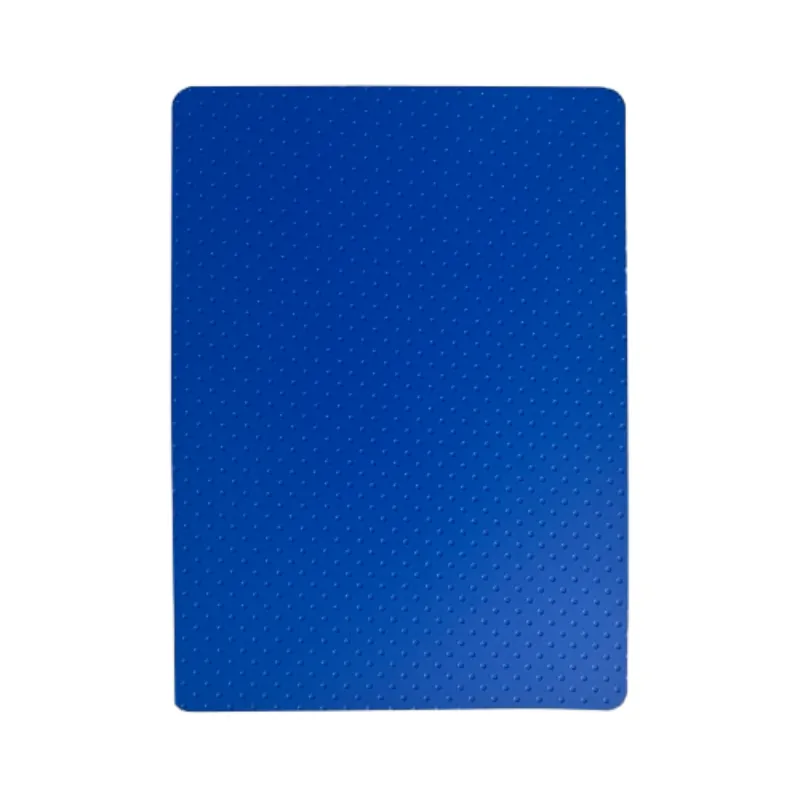Durable Interlocking Tiles Made from High-Quality Polypropylene for Versatile Flooring Solutions
The Advantages of Polypropylene Interlocking Tiles
In recent years, the popularity of polypropylene interlocking tiles has surged, especially in residential, commercial, and industrial settings. These versatile flooring options offer numerous benefits that make them an attractive choice for various applications. This article will explore what polypropylene interlocking tiles are, their advantages, and their applications across different environments.
What are Polypropylene Interlocking Tiles?
Polypropylene interlocking tiles are modular flooring solutions made from durable polypropylene resin. They are designed to snap together effortlessly, allowing for a seamless installation process without the need for adhesives or specialized tools. The tiles are highly durable, resistant to moisture and chemicals, and engineered to withstand heavy foot traffic, making them suitable for a variety of environments.
Advantages of Polypropylene Interlocking Tiles
1. Ease of Installation One of the main attractions of polypropylene interlocking tiles is their user-friendly installation. Thanks to their interlocking design, even those with minimal DIY experience can easily lay down the tiles. This feature not only saves time but also reduces labor costs, making it a cost-effective flooring solution.
2. Durability Polypropylene is known for its strength and resistance to wear and tear. Interlocking tiles made from this material can withstand heavy objects, high foot traffic, and significant impacts without cracking or breaking. This durability is particularly advantageous for industrial applications, such as warehouses and manufacturing facilities.
3. Moisture Resistance Polypropylene does not absorb moisture, making these tiles ideal for environments prone to spills or high humidity, such as gyms, basements, and locker rooms. This non-porous characteristic helps to prevent the growth of mold and mildew, ensuring a healthier indoor environment.
polypropylene interlocking tiles

4. Versatile Design Options Available in a variety of colors, patterns, and textures, polypropylene interlocking tiles provide excellent design flexibility. This feature allows businesses and homeowners to customize their flooring to suit their aesthetic preferences. Whether you're looking for a bold statement or a subtle backdrop, there is a tile option to meet your needs.
5. Low Maintenance Cleaning and maintaining polypropylene interlocking tiles is a breeze. Their smooth surface allows for easy sweeping, mopping, or vacuuming, and they typically do not require any special cleaning products. This simplicity in maintenance can help save time and money in the long run.
6. Eco-Friendliness Many manufacturers produce polypropylene tiles with recycled materials, making them a more sustainable flooring option. Furthermore, the tiles are often 100% recyclable at the end of their life cycle, adding to their environmental appeal.
Applications of Polypropylene Interlocking Tiles
Due to their many advantages, polypropylene interlocking tiles are suitable for a wide range of applications. In residential settings, they can be used in basements, garages, and playrooms. For commercial use, they are popular in offices, retail spaces, and restaurants where a durable yet attractive floor is required. In industrial contexts, they prove invaluable in warehouses, manufacturing plants, and auto shops.
Conclusion
Polypropylene interlocking tiles stand out as a flooring solution that combines practicality, aesthetics, and versatility. Their ease of installation, durability, moisture resistance, and design flexibility make them a preferred choice across various environments. Whether you're renovating your home or outfitting a commercial space, these tiles can provide a solution that meets both functional and aesthetic needs. With their growing popularity, it is clear that polypropylene interlocking tiles are here to stay as a go-to flooring choice for many.
-
Commercial Parquet Flooring: Considerations of Aesthetics, Practicality, And SustainabilityNewsApr.15,2025
-
PVC Sports Flooring: Performance, Applications, And Development TrendsNewsApr.15,2025
-
PP Interlocking Floor: a Paving Solution That Combines Functionality and SustainabilityNewsApr.15,2025
-
Plastic Flooring Tiles Outdoor: Practicality, Sustainability, And Development ProspectsNewsApr.15,2025
-
On the Application of PVC Flooring for Badminton Court in Badminton VenuesNewsApr.15,2025
-
Commercial Wood Flooring: the Balance Between Aesthetics, Functionality, And SustainabilityNewsApr.15,2025
-
The Ultimate Guide to Futsal FlooringNewsMar.27,2025

